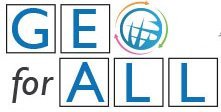The 20th series of EuroSDR e-learning courses will open on February 14-15, 2022 with a hybrid pre-course seminar, hosted by the University of Ljubljana, Faculty of Civil and Geodetic Engineering, Slovenia. During the seminar, the background material of the four e-learning EduServ 2022 courses will be presented by the tutors and the learning e-platform will be demonstrated. The four two-week e-learning courses are scheduled from February to June 2022. Each course requires about thirty hours of online study.
Recent LiDAR technologies
Tutor: Gottfried Mandlburger (TU Vienna)
The course tackles the recent progress in Airborne Laser Scanning (ALS), 3D mapping of topography and shallow water bathymetry, including the following topics: point density and spatial resolu- tion, full waveform analysis (state-of-the art FWF processing techniques enable higher measurement precision and better target characterisation), multispectral laser scanning (scanners using laser wavelengths facilitate point classification by exploiting the radiometric content of the captured data), hybrid sensors (scanners and cameras mount- ed on the same platform enable joint processing of laser scans and image blocks), single Photon LiDAR (mapping sensors provide a higher area coverage at the prize of lower accuracy and higher outlier rate requiring robust point cloud filtering), topo-bathy- metric LiDAR (beyond charting shallow coastal areas, laser bathymetry evolved to a powerful tool for high resolution mapping of the littoral area), UAV-LiDAR (sensor miniaturisation and progress in aviation technology has opened new close-range airborne applications).
Dates: February 28 - March 11, 2022
Working with Volunteered and Crowd- sourced Geographic Information
Tutors: Peter Mooney (Maynooth University), Levente Juhász (Florida International University)
Up to recently, geographic data was exclusively available from authoritative sources such as Nation- al Mapping and Cadastral Agencies, professional companies, etc. The rapid emergence of Volun- teered Geographic Information (VGI) and Crowd- sourced Geographic Information (CGI) has challenged and changed this situation. VGI and CGI have transformed from being considered 'disrup- tive' and poor quality to well-known mainstream data sources used widely in industry, research, and other applications. The goal of this course is to introduce participants to VGI (and CGI), the current state-of-the-art research in these areas, methods for obtaining VGI/CGI data (API sources, processing GeoJSON, etc), and advanced topics such as assess- ment of the quality of these data. Participants are informed that a basic knowledge of a programming language is required to complete some practical exercises and assessments. Free and open-source software and openly accessible VGI/CGI will be used.
Dates: March 28 - April 8, 2022
Integration of 3D city models and BIM: GeoBIM
Tutors: Francesca Noardo, Ken Arroyo Ohori (Delft University of Technology)
A lot has been discussed about the integration of geoinformation (i.e. 3D city models) with BIM in the last years. The topic is wide, complex and technically demanding. According to the progress made in the last few years, both on the technical and on the theoretical side, this course will teach the basic knowledge on GeoBIM integration based on the needs of use cases and will show two examples of conversions procedures that support those use cases. After introducing the basics on 3D city models and Building Information Models, students will learn a method to compare two datasets (a 3D city model and a BIM) in order to analyse their integration possibilities and define the actions necessary to get to an integrated dataset, useful for a use case. The students will then practice with two conversion procedures, one Geo to BIM and one BIM to Geo in order to produce suitable data for two specific use cases.
3D point cloud classification for mapping purposes
Tutors: Michael Koelle, Norbert Haala (University of Stuttgart), Eleonora Grilli, Fabio Remondino (Fondazione Bruno Kessler)
In recent years, point cloud processing techniques have been extensively investigated in the research community for various applications, and some commercial solutions start to be frequently used in daily practices. In particular, geospatial point cloud classification methods hold an important place, as assigning semantic information to 3D geodata allows for widespread use of such geospatial data. The course will present the latest developments and solutions for 3D point cloud classification, with particular emphasis on mapping needs, activities and purposes. Theoretical aspects and practical work will be coupled in order to provide a compre- hensive and complete overview of the topic. Starting from a brief overview on Deep Learning approaches to be used for the classification of orthoimages and DSM, the course will then focus on point cloud features, which can be made available for airborne scenarios. The final part will then discuss and showcase state-of-the-art Deep Learn- ing approaches specifically tailored for the semantic segmentation of 3D airborne point clouds.
Dates: May 23 - June 3, 2022
For more information visit http://www.eurosdr.net/education/current
Copia qui lo "short link" a questo articolo
www.geoforall.it/{sh404sef_shurl}




